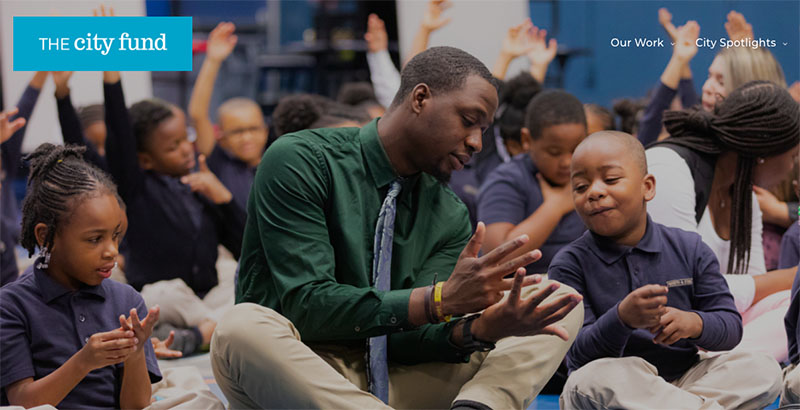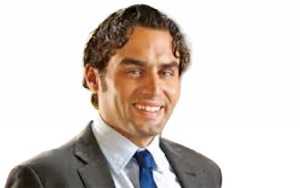City Fund Founder Reflects on Lessons From Year One — and Points to Priorities for the Work Ahead

In late 2018, we launched The City Fund with a deep belief that local leaders can dramatically improve the quality of public education offered to families.
We were inspired by growing evidence that public education systems in cities can become much better.
Over the past decade, cities like Denver, New Orleans and Washington, D.C., saw citywide improvement by empowering educators to run nonprofit schools, giving parents the freedom to find the education that is the best fit for their child and implementing citywide policies like transparent enrollment systems designed to ensure equity for all students.
For the past year and a half, we’ve been supporting a small number of local leaders as they’ve worked with diverse coalitions across their communities to improve public education.
As we launch our website, we’re excited to reflect on some of what we’ve learned — and share a few thoughts about where we’re headed:
Local pragmatism > national polarization
Our country is increasingly polarized, and our federal government is often deadlocked. But pragmatic city leaders are finding solutions in their communities. Whether that’s embracing Innovation Schools alongside district improvements in Indianapolis or fighting for increased funding for at-risk students in D.C., immense progress is being made in cities. A passionate debate about public education is taking place at the local level — as it should in a vibrant democracy — and in many cities, this debate is fueling innovation rather than stifling it. We’re eager to learn from the wide array of innovative schools and policies that are emerging across the country.
Academic achievement is on the rise
When we launched The City Fund, we committed to continue working with Arnold Ventures in partnering with universities and researchers to learn from local city efforts. Early results from that research are promising, both for the nonprofit sector and the cities as a whole. Particularly exciting is the “all boats rising” effect we’re seeing in many places. In Denver, Washington, D.C., and Camden, New Jersey, a project by the Center for Research on Education Outcomes at Stanford University found that all public schools improved as the nonprofit sector grew. An additional study found similarly positive results in Newark for all students across the city.
Parents are leading
Across the country, we’re seeing families driving the conversation about how to achieve educational equity in their communities. Parent leaders and their peers are showing what’s possible for students when families have a seat at the table. In D.C., for example, Parents Amplifying Voices in Education advocated for and secured a commitment to more equitable and transparent district budgeting. Likewise, in Atlanta, the Latino Association for Public School Parents issued the first-ever parent-driven state of the schools report in December calling for greater educational equity. We’re also moved by the millions of parents who every year fight to find a school that works for their kids. Most of the nonprofit schools we support exist only if parents choose to send their children there. This reality pushes our local partners to prioritize the needs of children and their families, and to get better as quickly as possible.
For all these reasons, we are optimistic about the future. But more needs to be done.
Local leaders need to reflect the community they’re serving
From school leaders to nonprofit executives, we have to do more to ensure that local leaders reflect the communities they serve. We’re providing direct grants and development opportunities to leaders of color across the country so they are positioned to lead the work in their cities. We also want to lead by example and be guided and informed by the communities we serve. Recognizing that educational inequities disproportionately impact African-American and Latino communities, we aim to build an organization where our board and senior staff in large part comprise leaders of these communities. We’re not yet where we want to be, but we are committed to this work and believe this will make us smarter and better able to help cities across the country.
Keep our focus on what matters most
We’re heartened by the fact that families are choosing the schools we support, and that these schools show improvement on measures of student achievement like state assessments. But the goal of public education is not to increase test scores. The goal, in large part, is to help students be prepared to lead meaningful, secure and successful lives. We and our partner cities are not yet on track to deliver on this promise for all children. The percentage of students transitioning to good work, national service or effective postsecondary institutions remains far too low. Early data suggest that around 30 percent of low-income students attending high-performing nonprofit schools are on track for middle-class jobs. This is much higher than the national average for low-income students, but not good enough.
The early results we are seeing are encouraging, but we know cities are on a decades-long journey to build great public school systems. We’re honored to be partnering with them along the way.
Neerav Kingsland is managing partner of The City Fund and the former CEO of New Schools for New Orleans, where he helped develop the strategy for the transformation of the city’s schools. Also contributing to this essay were City Fund partners Chris Barbic, David Harris, Ethan Gray, Gabrielle Wyatt, Jessica Pena, Kameelah Shaheed-Diallo, Ken Bubp, Kevin Huffman and Kevin Shafer.
Disclosure: The City Fund provides financial support to The 74.
Get stories like these delivered straight to your inbox. Sign up for The 74 Newsletter

;)
